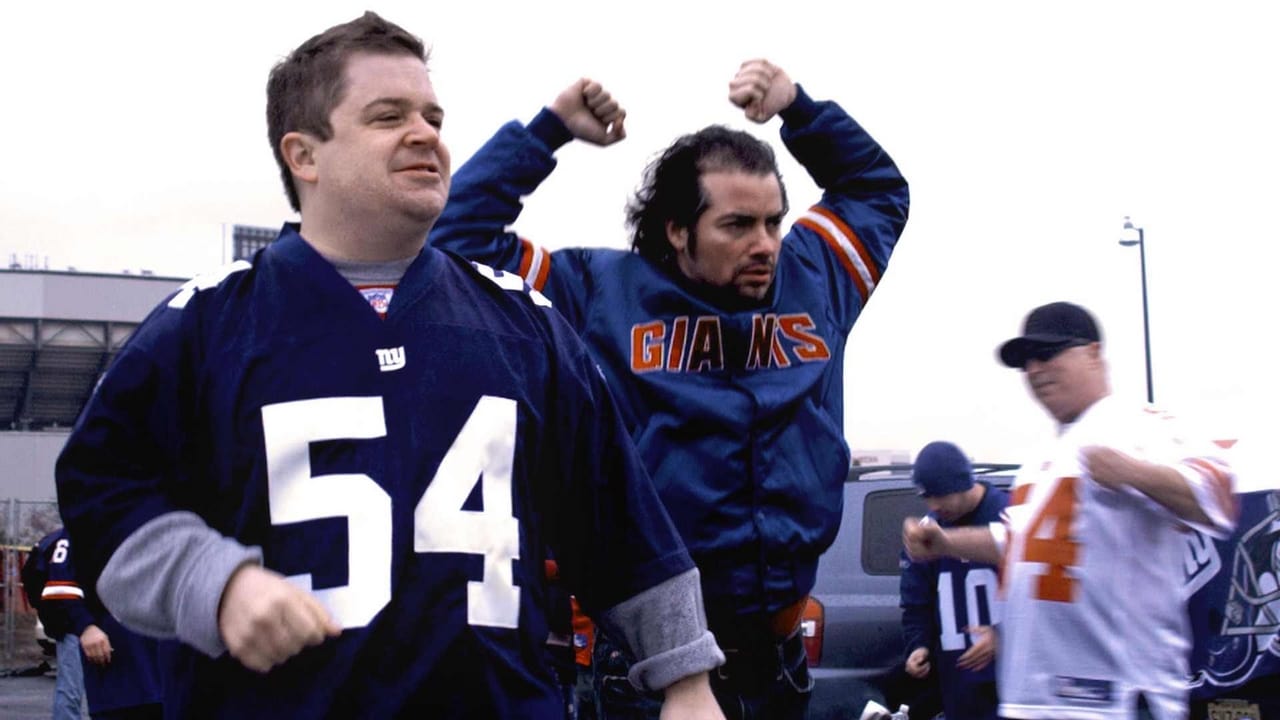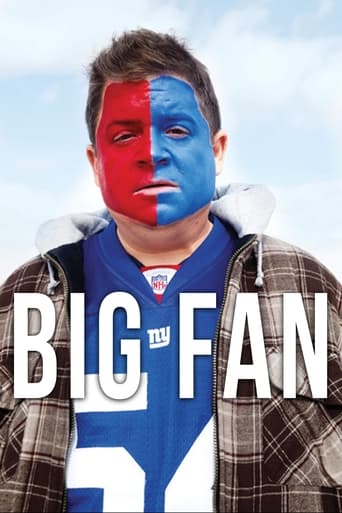

Nice movie about how fanatic people can be when it's about their favorite sports team. It doesn't matter which sport it is, American football or soccer or whatever other sport. Some people dedicate their life to their team and if you are not one of them you probably won't understand this movie completely. I did, and I thought it was a nice movie about the dedication he has for his team, the NY Giants, and for one player in particular. Patton Oswalt plays Paul Auferio, hardcore fan of the Giants, that suddenly becomes a victim and the cause of the failing of his favorite team. He struggles with the things he should do. His family tries to convince him to go for the big money, but as a fan he is not interested in that. Very well done from Patton Oswalt. Nice to see him in a different role then we are used to see him. I enjoyed this movie, and I think even non sports fanatics will also enjoy it.
... View MoreRobert D. Siegel's Big Fan is an engrossing look into a die-hard sports fan. It's completely engaging and tragic and uplifting all at once.Paul from Staten Island lives in boxes. He's a parking garage attendant. He lives with his mother. He has one friend. He has one obsession: Giants' football (though he won't dare step foot inside Giants stadium – real fans watch from the parking lot while tailgating). He's got one hobby: calling into a sports radio station. A meticulous hobby, he doesn't just call in. He writes down what he'll say, rehearses it out loud before he calls in and after he "nails it," he casually tells his friend that he was just wingin' it.Paul won't take your pity; he chooses this life. It's not that he's socially awkward or can't interact with society in a larger way, it's that he doesn't want to. It's his dedication and unconditional love of something greater than himself that he values and when we recognizes that others lack that kind of passion he's uninterested in them.Paul and his friend tail their favorite player, Quantrell Bishop, to a club one night and through some unfortunate miscommunication Paul gets brutally beaten up by Bishop. Putting his love for football over his own self interest Paul tries to ignore how his hobby turned on him. From this choice spirals a host of effects that Paul fights to regain control of. All of this ends with a climatic showdown with his radio rival in a scene that is pure brilliance and pure Paul, through and through. You'll cheer. Trust me. Paul is played by comedian Patton Oswald and holy hell does he do an amazing job. A character like this could easily spin in caricature or stereotype, but with subtlety and honesty in Oswald's performance it never does.
... View MoreExceptional. A bit pathetic, but a very good sports related drama. Paul Aufiero(Patton Oswalt)is more than just a big fan of the New York Giants; he is sometimes an irrational fan out of control. Paul still lives at home with his mom and has a dead end job...he seems to have minimal ambition. This big fan never misses a Giant's game; he's usually watching the game on TV... in the parking lot. Paul spends most of his day composing his rant for the call-in radio sports show; and he wastes no time hating Philadelphia Phil(Michael Rapaport). These two super fans taunt each other the air waves...until Paul loses control and puts on his 'war paint' and goes out to prove his allegiance and undying devotion for his team.This probably isn't meant to be funny; in a sympathetic way it is. Other players: Kevin Corrigan, Marcia Jean Kurtz, Matt Servito and Gino Cafereli.
... View MoreBig Fan stands as a profound and thoroughly remarkable character study marked by a magnetic performance of Patton Oswalt. He excels as Paul Aufiero, a life-long fan of New York Giants being brutally hit by one of Giants' top players in a strip club. Oswalt is equally sympathetic and believable starring as this deeply troubled character. His performance is the chief, but thankfully not the only reason to see Big Fan. Writer-director Robert Siegel regards the sports fanaticism as an addiction and that gives his film the necessary gravitas: its power and its credibility. The script is devoid of clichés with many well-observed situations thrown in and several ingenious twists you won't see coming. As a result, you observe Paul falling into decay with great anxiety combined with care. Siegel crafts a subversive comedy, funny and bleak in equal measures. It also works as a peculiar take on the pathology of sports mania.
... View More